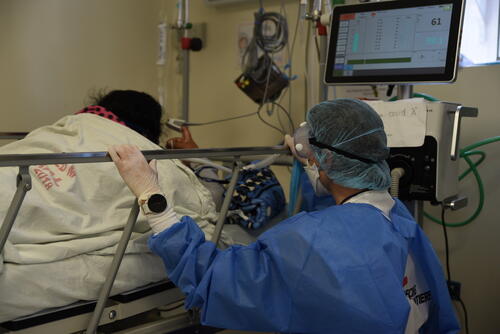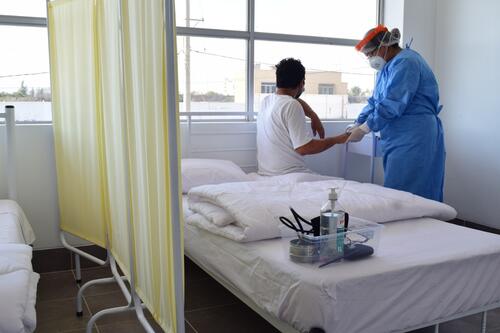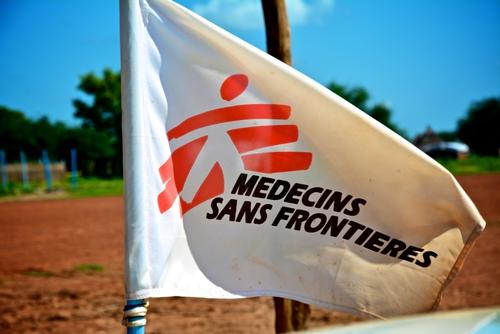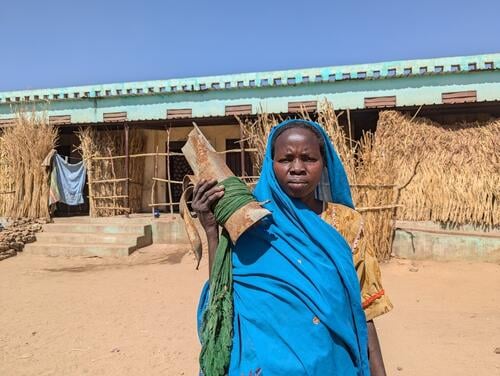- Having recently revised the number of deaths, Peru currently has the highest COVID-19 mortality rate in the world.
- The high rate of deaths from the coronavirus follows the health system being overwhelmed and a very low vaccination rate.
- MSF teams have scaled up our response in the country, and are providing treatment for COVID-19 in a number of places across the country.
Lima/Paris – Peru, which in recent days has revised up the number of deaths from COVID-19, currently has the highest COVID-19 mortality rate in the world. The revelation comes as the country experiences a major gap in its access to vaccines and is still struggling with overwhelmed intensive care units, even if the overall number of cases has declined in recent weeks few weeks.
Médecins Sans Frontières (MSF) expanded our intervention with a new facility in Cusco, to help relieve some of the pressure on treatment of the more critical cases.
“The main challenge today is to help patients in severe and critical conditions,” says Francesco Segoni, MSF’s Emergency Coordinator in Peru. “There are almost no beds available in intensive care units, and they are often occupied for long periods by severe COVID-19 patients.”
“These two elements combine to create a bottleneck,” says Segoni. “Oxygen supplies are insufficient, and a major concern is that the vaccination rate is still very low, leaving people exposed and the healthcare system under pressure.”
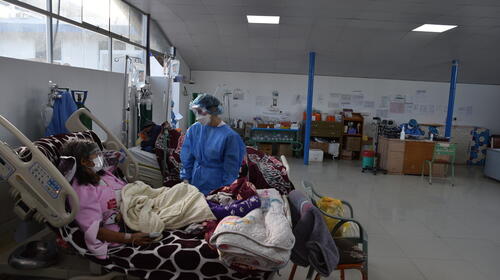
On 31 May 2021 the Peruvian Ministry of Heath announced a revised number of deaths from COVID-19 since the beginning of the outbreak, following the indications of a Government task force that worked for weeks to review the calculation.
The total number of deaths from the disease now stands at over 180,000 people, which is two and a half times higher than the previous count (69,300). Peru now has the world’s highest number of COVID-19 deaths per million people, and the fifth highest number of deaths in absolute terms.
As of today, only 11 per cent of Peruvians have received the first dose of a vaccine and less than four per cent of people are fully vaccinated.
“With the presence of multiple variants, and insufficient testing capacities leading to slow detection of cases, as long as people are unprotected, the curve may start ascending again,” explains Segoni.
With a 100 per cent bed-occupancy rate in intensive care units across the country, the pressure remains very high. Medical staff are stretched to their maximum capacity and beyond, and resources are insufficient to meet the needs.
With the presence of multiple variants, and insufficient testing capacities leading to slow detection of cases, as long as people are unprotected, the curve may start ascending again.Francesco Segoni, MSF Emergency Coordinator in Peru
MSF opened our second COVID-19 project in May in the city of Cusco, in the country’s southeast, to provide treatment for patients who are in critical condition and need high-flow oxygen, aiming at taking some of the pressure off from the intensive care unit of Antonio Lorena hospital. In the first two weeks of our activities, 17 patients were admitted.
Our activity in Cusco adds to the ongoing work in Huacho, some 140 kilometres north of Lima, the capital, where our teams are helping the Regional Hospital’s intensive care unit. MSF teams are also treating patients who need oxygen in a dedicated facility and are working in the community and local healthcare centres to improve screening and referrals.
More than 140 patients have been admitted in our 32-bed isolation and high-flow oxygenation centre, and more than 2,000 consultations have taken place in the four health centres supported by MSF to facilitate triage. Mobile teams, who have been able to provide home care to some 120 people every week, have also vaccinated over 1,000 people with a first shot.



